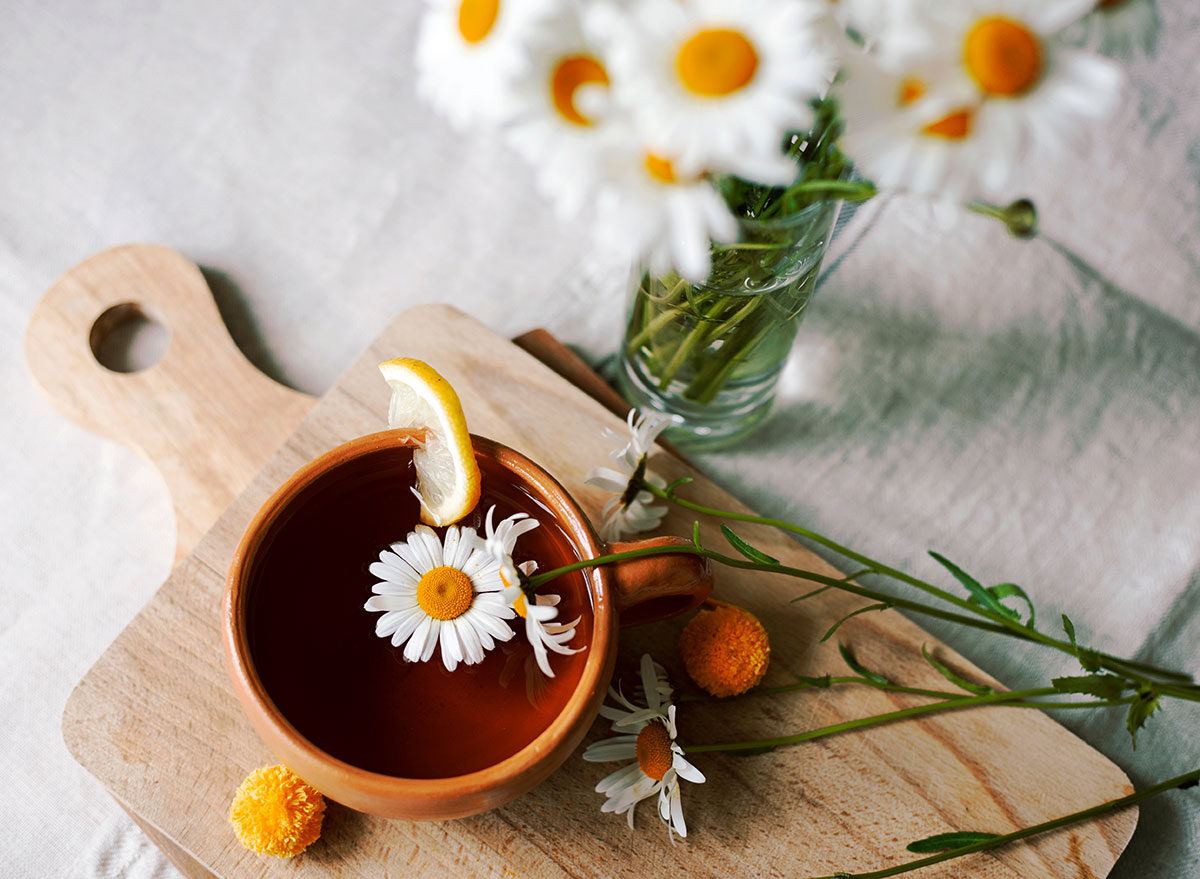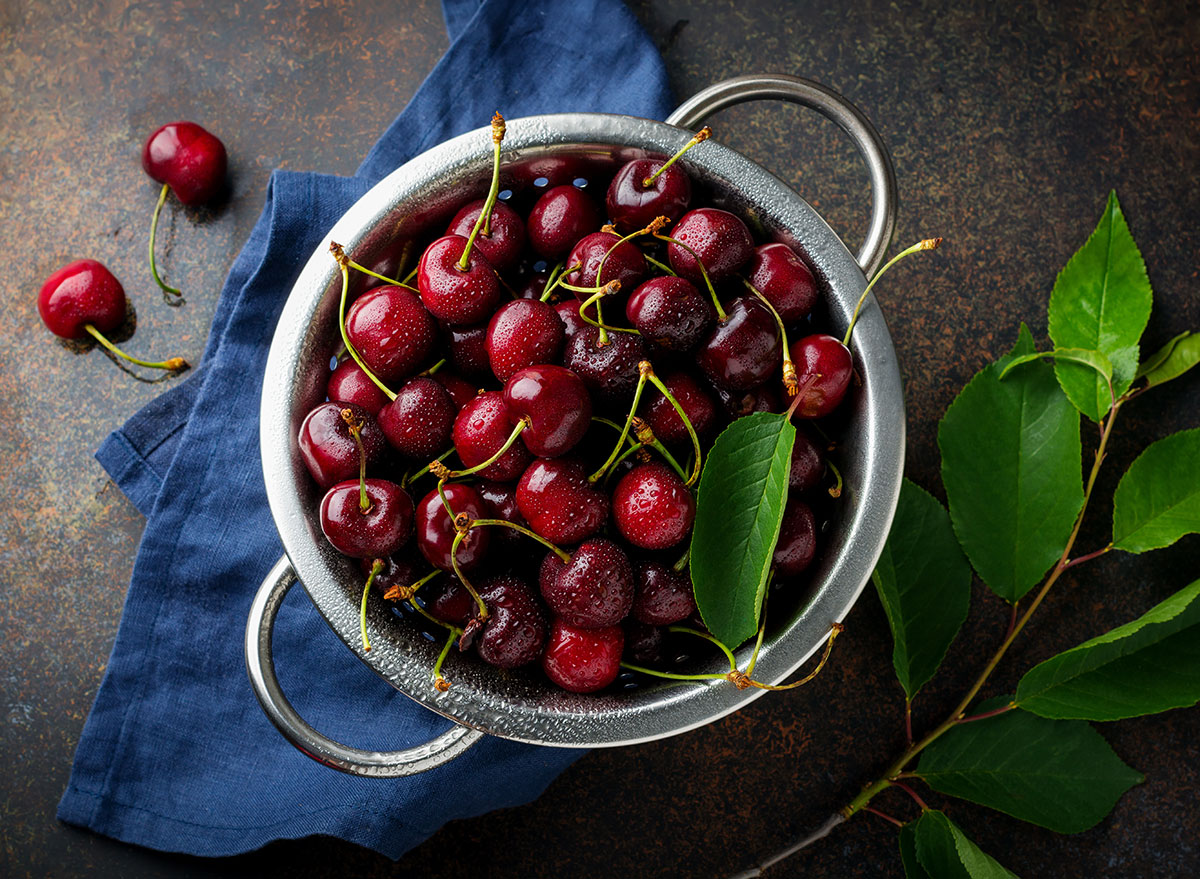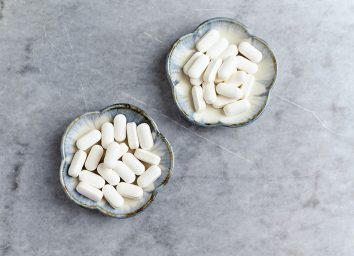The Best Foods For a Good Night’s Rest, According to Experts

After a long day, there is nothing better than a good night’s sleep.
Not only does it feel unbelievable to wake up rested and ready to take on the day, but as Dr. Vikki Petersen, CCN, DC, CFMP points out “eight hours of restful sleep per night can help prevent cancer, obesity, heart disease, depression, Alzheimer’s and several more degenerative diseases.”
However, getting those full eight hours each night is easier said than done. Whether you’re stressed out, not exercising enough, suffering from medical problems, or not practicing good sleep hygiene, there are many underlying causes for waking up still feeling tired. It’s also something that’s extremely common.
“The WHO has deemed insomnia and poor sleep quality an epidemic among developed countries as it affects two-thirds of all adults,” says Petersen.
One thing that could be standing in your way of good sleep, is your own diet. The foods you eat can both negatively and positively impact your ability to fall asleep, stay asleep, and most importantly, feel rested when you wake up. (Related: The 7 Healthiest Foods to Eat Right Now).
To identify what the best foods are for a good night’s rest, we turned to the experts. Below, you’ll see their top suggestions, so you can stock your kitchen and begin your journey to better sleep. And for more tips on how you can improve your shuteye, don’t miss the 20 Ways to Double Your Sleep Quality.
Almonds

Next time you’re looking for an after-dinner snack, look no further than the almonds in your pantry. Not only will these nuts help you sleep, but they also have many other health benefits like lowering cholesterol and improving your mood.
“Almonds contain melatonin, your sleep hormone, along with strong amounts of magnesium and calcium, minerals known to relax your muscles and promote good sleep,” says Petersen. Dr. Taz, MD, and ETNT medical expert board member suggests soaking almonds overnight or for at least a few hours before eating them to aid in digestion.
Speaking of melatonin, did you know it also may help you combat COVID-19?
Kiwi

Kiwis are an excellent healthy ingredient to add to your dessert after dinner, like in this Greek Yogurt with Pineapple, Kiwi, Mango, and Ginger Syrup. Specifically, Petersen notes that eating two kiwis two hours before bed could be the key to a good night’s rest.
“Kiwi fruit has been shown to improve sleep efficiency along with falling asleep faster,” she says. “Kiwis contain several sleep-promoting nutrients including melatonin, magnesium, potassium, calcium, folate, along with the healthy phytonutrients flavonoids and carotenoids.” So, if you haven’t already started incorporating kiwi into your diet, consider doing so soon, as it could be the subtle sleep remedy you didn’t know you needed.
Tart cherry

Skip the ice cream sundae for dessert, and go for the cherry on top instead—well, a bowl’s worth anyways!
“Whole tart cherries are a natural source of melatonin,” says Dawn Jackson Blatner, RDN, and author of The Superfood Swap. Blatner recommends sipping on Daily Harvest Tart Cherry + Raspberry smoothies for a boost of nutrition, and to help you soothe yourself into a restful sleep.
Not only are tart cherries rich in melatonin, but as Petersen notes, they also contain tryptophan, serotonin, potassium, and antioxidants, all of which are beneficial for sleep patterns. Enjoy a bowl of cherries with a dollop of whipped cream for dessert a few hours before bed.
Pumpkin seeds

What we love about pumpkin seeds the most? They’re so versatile! Petersen suggests sprinkling them on top of dinner salads in place of croutons or even adding them as a garnish to warming soups.
“Pumpkin seeds are an excellent source of magnesium. One study in the Journal of Research in Medical Sciences found that magnesium supplements improved insomnia and sleep efficiency,” she says.
Don’t miss What Happens To Your Body When You Eat Seeds.
Chamomile Tea

If you’ve ever had a cup of chamomile tea and instantly felt sleepy, know that it’s not in your head.
“Chamomile contains flavonoids such as chrysin and apigenin, which may bind to GABA receptors in the brain to produce an overall calming effect,” says Blatner. “Get in the habit of sipping a cup of chamomile nightly with a splash of steamed almond milk.”
Just make sure you don’t drink it too close to bedtime because the last thing you want is to wake up in the middle of the night to use the bathroom.
For more ideas on what to eat before you try and get some shuteye, check out The 5 Absolute Best Foods to Eat For Better Sleep.








